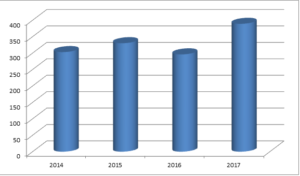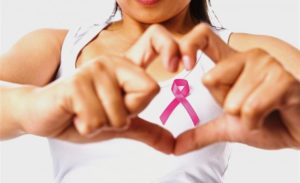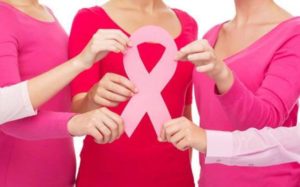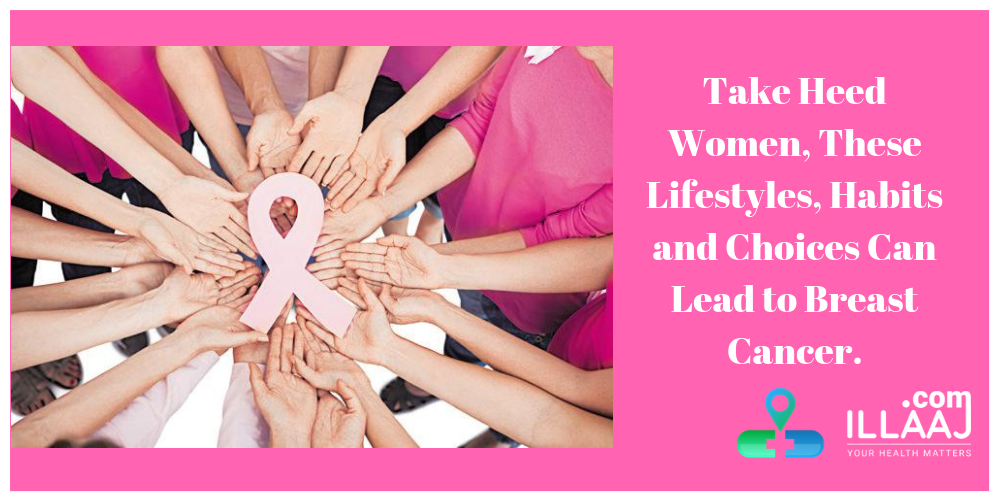Breast cancer is the most common among the women in Kashmir. According to the official data recorded in SKIMS J&K, there is rise in breast cancer cases from past 4 years. In 2017 the number of cases was recorded as 389 which are higher than previous years.
Recorded data of cases depicts; 2014 (303), 2015 (330), 2016 (296) cases were examined. Official data reveals that over the past four years 1,318 cases of breast cancer are reported.

What is breast cancer?
Breast cancer is a form of cancer which is common in females. It occurs when cells in the breast tissue show abnormal mutation.
These cells gather together a form lump of a tumor which is cancerous in nature and later on this tumor invades to the other parts of your body through a blood stream or lymphatic system.
The epicenter of breast cancer is usually a milk producing gland of the breast called as lobes. Though it is 100 times more common in women but yes even men can get breast cancer due to presence of breast tissues in their body.

Symptoms:
A lump in the breast is the commonest sign of breast cancer. In most cases this is painless, so women donÔÇÖt notice it till it becomes large in size.
Change in the nipple like nipple going inwards, redness over the nipple or fluid discharge from the nipple is also a common presentation. Other things to be on the lookout for are a dent in the skin of the breast, redness that does not go away and lumps in the armpit.
Causes:

Our lifestyle choices and the way we lead our day-to-day lives can affect our risk of developing breast cancer. Changing lifestyle habits, increasing work pressure and stress levels have left modern-day individuals with no time to pay heed to their health and one disease that seems to be emerging because of irregular lifestyle is breast cancer. It is caused due to genetic mutations (changes) in the DNA of your breast cells. These mutations can develop randomly over time or may be inherited due to change in lifestyle. We have listed some key factors which are responsible for the breast cancer:
- Hormones. Breast cancer is common in Women with an early menstrual period (starting before age 12) and late menopause (after age 55).As studies say that longer exposure to the female hormone estrogen may be a factor because estrogen stimulates the growth of the cells of the breast. Similarly, the habit of hormone therapy after menopause performs to boost the risk of breast cancer.
- Age and gender. Age and your gender is the important factor in deciding the breast cancer. If you are a woman and youÔÇÖre getting older, you may be at risk of developing breast cancer. The risk begins to climb after age 40 and is highest for women in their 70s. But males have to be cautious too as this tissue can show abnormality in any organism.
- Hereditary factor: Doctors often ask you about the family history when you have symptoms of breast cancer as having a close blood relative with breast cancer increases your risk of developing the disease. A womanÔÇÖs breast cancer risk is almost double if she has a mom, sister, or daughter with breast cancer and about triple, if she has two or more first-degree relatives with breast cancer.
- Your overweight: Women who are obese after menopause are more likely to get breast cancer as higher levels of estrogen are produced by fat cells after menopause. Being overweight also boosts blood levels of insulin, which may affect breast cancer risk.
- Pregnancy history. Having no children or having a first child after age 30 may increase your risk of breast cancer as tumor lumps are formed in the women who do not breastfeed their children. Try and breastfeed your kids for at least a year.
- Alcohol consumption: Studies suggest women who drink two or more alcoholic beverages a day are 1 1/2 times more likely than non-drinkers to develop breast cancer. The risk rises with greater alcohol intake, and alcohol is known to increase the risk of other cancers too.
- Radiation exposure: A womanÔÇÖs risk of developing breast cancer may be higher than normal if she had chest radiation for another disease as a child or young adult.
- Junk food: your health truly depends on what you are eating. It is advisable to avoid junk food as a chemical used for the preservation of junk food is the important factor causing breast cancer in young girls.
- Hormone replacement therapy (HRT) and contraceptive pills:Medical improvisations you donÔÇÖt need! Avoid using the viral popular HRT or contraception tablets to abnormally treat menopausal symptoms and unwanted pregnancy.
How you can detect breast cancer in early stage?
The two simple ways of detecting cancer at an early stage are a regular self-examination and regular mammograms ( x-ray of the breast). All women should examine their breasts, at least once every month. The best time to do this is 7-10 days after the periods finish. Get a breast specialist to examine you once a year. The first mammogram should be performed at age 35. Based on the findings of this mammogram and on your personal risk, the doctor will advise how frequently they should be performed. Routinely it is recommended that from the age of 40 on wards, all women should have mammograms once every two years. Mammograms can pick up small cancers when they cannot even be felt by clinical examination.
A final take-home message:
  We have compiled for you certain lifestyle changes that will help you to lower the risk the of breast cancer:
 We have compiled for you certain lifestyle changes that will help you to lower the risk the of breast cancer:
- Women who work out regularly have a lower risk of breast cancer than less active women.
- Consider breastfeeding your baby. Women who breastfeed have a lower risk of breast cancer than moms who do not breastfeed their children.
- Reduce your hormone intake. Hormone therapy users are at higher risk for breast cancer. If youÔÇÖre taking hormones to relieve menopausal symptoms, talk to your doctor about taking the lowest dose that works for you for the shortest time.
- Regularly examine your breasts and never ignore a change in the breast. Always get it checked out at the earliest. Have regular mammograms as advised by your doctor.
- Watch your weight. Being overweight or obese boosts your breast cancer risk.

